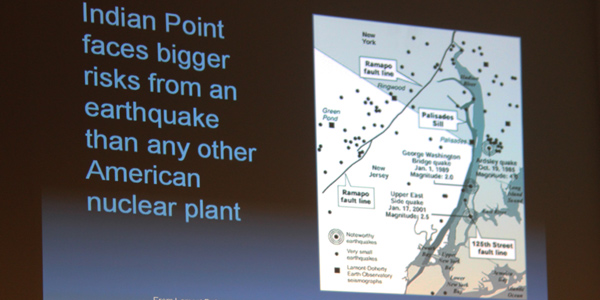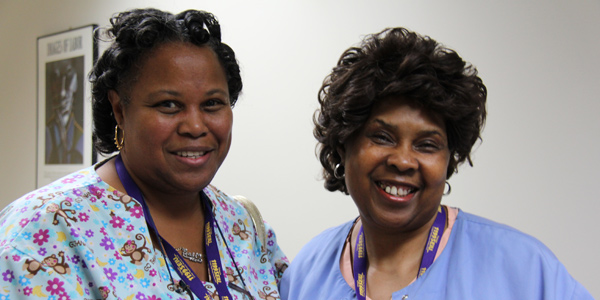Hudson Valley Delegates Hear About Pressing Environmental Threats
February 21, 2012
Hudson Valley 1199SEIU Delegates held an exciting Assembly in White Plains, NY on February 15, hosting l guest speaker Paul Gallay, the President of Hudson Riverkeeper. Riverkeeper is a member-supported watchdog organization dedicated to defending the Hudson River and its tributaries and protecting the drinking water of nine million people in New York City and the Hudson Valley.
Since 1966, they have established globally recognized standards for waterway and watershed protection. Bobby Kennedy, Jr is Riverkeeper’s chief attorney; former 1199SEIU President Dennis Rivera is on its executive board.
Executive Vice-President Lisa Brown introduced the topic ot the Delegates “Why is this important? Environmental issues are quality of life issues. Taking care of our planet sustains our lives and that is real health care,” she said. Gallay elaborated on Brown’s remarks. “The environment, the economy, health care and social justice issues are all linked. They cannot be separated and they advance each other,” he explained.
Riverkeeper has been a leader in the campaign to ban gas-drilling using a method called high-volume hydraulic fracturing, also known as “hydrofracking” or “fracking.” The process involves injecting toxic chemicals, sand, and millions of gallons of water into shale formations. The chemicals, along with any natural gas, are then leaked to the surface. That chemical leak to the environment has dramatic implications for our health, especially the water we drink.
Gallay told the Delegates that we can avoid the need to drill for gas by instead putting resources into creating an energy-efficient economy, resulting in a healthier environment and job creation. While avoiding dependence on dirtier fossil fuels, new jobs in a “green economy” would help boost energy efficiency, increase renewable energy, and reduce pollution. Gallay said “There are better and safer solutions to fracking that will allow us to live safely and still use the energy we need.”
Another downside to hydrofracking is its correlation to earthquakes, an issue of great concern for many Hudson Valley members and their families who live near the Indian Point nuclear power plant in Westchester County and surrounding areas. Eighteen million people live or work within 50 miles of Indian Point. Studies indicate that Indian Point faces bigger risks from an earthquake than any other American nuclear plant. Two different earthquake fault lines cross just north of Indian Point, leading Columbia University to conclude that Indian Point is in pretty much the worst location for a nuke plant in the NY metropolitan area and calling a 7.0 quake “quite possible.”
Gallay said that the power plant could be closed with no harm-- there are safe alternatives for replacing the energy, and creating new green jobs with above average wages. These jobs would include retrofitting other power plants to make them cleaner, more efficient and safer; laying a power line under the Hudson River and using other alternative energy sources like wind and solar power.
Studies have shown that we have enough surplus power to close Indian Point tomorrow and meet demand through 2020, and that another 4,500 megawatts [more than twice Indian Point’s capacity] will be available by the time more power is needed. “If Indian Point closes, the cost of power will not increase, energy production can easily be sustained, good jobs will be available and we will all be healthier and safer,” Gallay said.
Betty Whitehead, an 1199 Delegate from Brandywine Nursing Home who works and lives within 50 miles of Indian Point, said, “I am really glad we discussed this topic tonight . I have had many questions about the power plant. I recently got a letter in the mail telling me that if I live near the plant I should take a vitamin. I said, `what?’ I want to be sure my grandchildren are left with a safe world. What we all need to do is continue to keep informed and updated and talk to our friends and family and co-workers so that the facts replace fear.”
For more information: www.Riverkeeper.org



